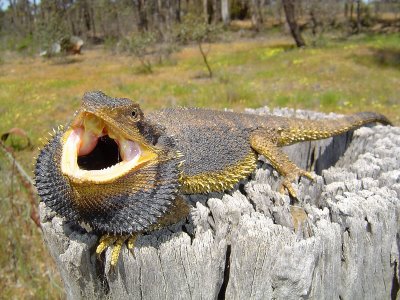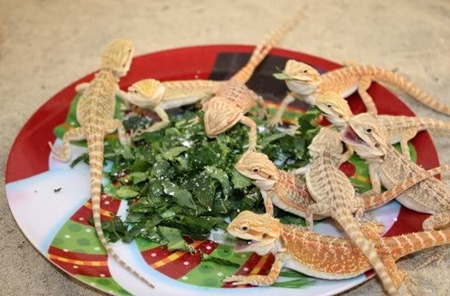Why Is My Bearded Dragon not Eating or Moving? Here's What You Need to Know
Introduction
Bearded dragons are popular pets among reptile enthusiasts due to their unique appearance, docile nature, and entertaining behavior. These lizards are easy to care for, making them ideal for beginners. One of the most common concerns that bearded dragon owners have is when their pet stops eating or moving. If your bearded dragon is exhibiting these symptoms, here’s what you need to know.
Possible Reasons Why Your Bearded Dragon is Not Eating or Moving
Before we dive into the possible reasons why your bearded dragon is not eating or moving, it’s essential to understand that they are cold-blooded animals. This means they rely on external heat sources to regulate their body temperatures. Therefore, if your bearded dragon is not exhibiting normal behavior, it could be due to an underlying issue.
1. Temperature
Bearded dragons require a basking spot with a temperature of 100-110°F and a cool end with a temperature of 75-85°F. If the temperatures in their habitat are too low, they will become lethargic, lack appetite and become inactive. Ensure you have a reliable thermometer and adjust their environment to the required temperatures.
2. Lighting
Bearded dragons require UVB lighting to help their bodies produce vitamin D3, which is necessary for proper calcium absorption. Calcium is a vital nutrient that helps maintain their bones, muscles, and immune system. Without proper UVB lighting, bearded dragons can develop metabolic bone disease, which can lead to lethargy, loss of appetite, and other issues.
3. Stress
Bearded dragons are sensitive creatures that can become stressed for various reasons such as insufficient hiding spots, overhandling, inappropriate substrate or enclosure size, and more. If your bearded dragon is stressed, they may stop eating or moving. Ensure they have ample hiding spaces, a suitable enclosure, and avoid overhandling your pet.

4. Illness or Parasites
Like all animals, bearded dragons can suffer from various illnesses or parasites. Some common health issues that bearded dragons face include respiratory infections, mouth rot, impaction, and more. If your bearded dragon is displaying symptoms such as lack of appetite or movement, you should take them to a reptile veterinarian for a proper diagnosis and treatment if necessary.

What to Do If Your Bearded Dragon is Not Eating or Moving
If your bearded dragon is not eating or moving, it is crucial to identify the underlying problem and take immediate action. Here are some steps you can follow to help your bearded dragon:
1. Check the Temperature and Lighting in Their Habitat
Start by checking the temperature and lighting in their habitat. Adjust the temperature or replace the UVB bulb if necessary.
2. Observe Your Pet’s Behavior
Observe your pet’s behavior to see if they are showing any signs of stress, illness, or parasites. This will help you identify the underlying problem.
3. Offer Food and Water
Offer your bearded dragon their favorite food and water. If they are still not eating or drinking, try to syringe-feed them a slurry made of water and their normal diet or a commercial reptile supplement.

4. Seek Veterinary Care
If your bearded dragon is still not eating or moving after taking the above steps, it’s time to seek veterinary care. A reptile veterinarian will be able to diagnose and treat your bearded dragon’s underlying issue.
Conclusion
Bearded dragons are beloved pets for their unique personalities and easy-going nature. If your bearded dragon is not eating or moving, it’s essential to identify the underlying issue and take immediate action. Maintaining proper temperatures, lighting, and a stress-free environment can help prevent these issues from arising. If you are unsure about your bearded dragon’s health or how to care for them properly, consult with your veterinarian or a reptile expert for guidance.
